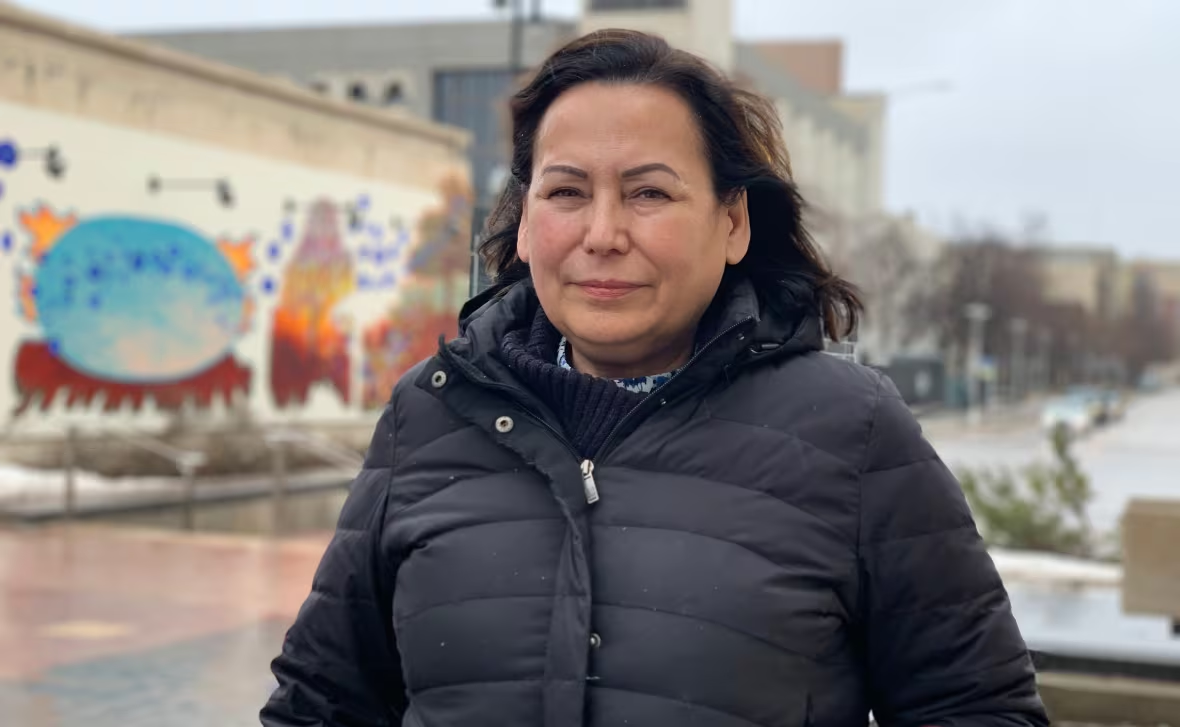Advocacy group wants inquiry into initial refusal to search Manitoba landfill for victims of serial killer
Advocate says probe won't achieve the results people want but change might come with judicial procedure
A Manitoba non-profit organization dedicated to supporting Indigenous people is pushing for an independent inquiry into the refusal to search a landfill for the human remains of missing and murdered Indigenous women, girls and two-spirit people.
The call for action is coming after Winnipeg police identified Ashlee Shingoose as Mashkode Bizhiki'ikwe, or Buffalo Woman, the first and previously unidentified victim of a Winnipeg serial killer responsible for the murder of three other First Nation women.
Shingoose, from St. Theresa Point Anisininew Nation, had been last seen in downtown Winnipeg in 2022 before she was killed by Jeremy Skibicki. Police believe her remains were taken to Brady Road landfill and the province has promised to search for them.
Manitoba Moon Voices Inc. said in a statement that Shingoose's case underscores the reality of Indigenous women, who are left vulnerable and unsupported by systemic failures.
Cheryl Alexander, co-chair of the non-profit, said the victims' families have had to rely on community support and partnership work with agencies to search a landfill for their loved ones, when that should have been the job of law enforcement agencies and governments from the beginning.
"We could learn to do better," she said.
She said there needs to be more transparency on the Winnipeg Police Service and the former Manitoba PC government's decision not to search the Prairie Green landfill for the remains of Morgan Harris and Marcedes Myran, two of Skibicki's other victims.

"It was a long process … it felt like [it] was being dragged out and I don't think that would have happened if it hadn't been in a non-Indigenous circumstance," Alexander said.
The non-profit is hoping an inquiry would produce a report with recommendations that can trigger policy changes designed to prevent the refusal of a human remains search at a landfill from happening ever again.
Alexander said the refusal to search the landfill was a "historic marker," similar to other painful mistakes in the past that might be repeated if no changes are made.
"At the end of the day these are our relatives and no [one] should be left in that state anywhere," she said.
"It shouldn't be about money. It should be about doing the right thing … a humanitarian effort."
Manitoba Moon Voices is also pushing for a mandatory Indigenous oversight on police missing person investigations related to Indigenous communities, and sustained funding for the search for missing and murdered Indigenous women, girls and two-spirit people.
'It is not to attack anyone'
The Assembly of First Nations has also pushed for a public inquiry into how the Winnipeg Police Service handled the investigation into the deaths of Harris, Myran, Shingoose and Rebecca Contois — Skibicki's fourth victim — including the recovery efforts.
"This must be a turning point for justice," National Chief Cindy Woodhouse Nepinak said in a statement Wednesday, calling also to federal party leaders for support in helping Manitoba to establish the inquiry.
CBC News reached out to the provincial government and Winnipeg Police Service regarding any plans for an inquiry, but they didn't reply in time for publication.
Tanya Dawn McDougall helped lead a silent protest in support of a landfill search when then-premier Heather Stefanson visited St. Theresa Point during her re-election campaign in September 2023.
A mental health advocate who has been offering support to Shingoose's family throughout their search, McDougall is now also standing behind an inquiry with hopes spreading the truth, no matter how hard it can, could lead to changes.

"It's not to attack anyone," McDougall said "Mistakes were made, and they need to be learned from and in order to learn from you have to expose what those mistakes were."
"We need to make sure that this doesn't happen again."
McDougall said communities are not giving up in their pursuit of justice, even though other probes, such as 1991's Aboriginal Justice Inquiry mandated to investigate the depths of racism in Manitoba's justice system, have produced recommendations that are yet to be brought into action.
"Everything that's done today affects future generations," she said. "Everybody has a right to feel safe. Everybody has a right to feel valued, and that's the effort we have to put forth together as a society."

Sandra DeLaronde, chair of Giganawenimaanaanig Manitoba's MMIWG2S+ implementation committee, told CBC News inquiries and reports over the past 40 years have raised the same questions and concerns on systemic failures but fell short of bringing change forward.
"An inquiry isn't going to achieve the results that people are looking for, because history has shown us," DeLaronde said.
But other measures involving judicial bodies, including human rights tribunals or civil court, could be better at enforcing change, given the actions coming out of those systems are required to be implemented, she said.
DeLaronde isn't confident a new set of recommendations brought forward by an inquiry can prevent a landfill search from being refused in the future.
To have that standard, the responsibility of searching has to be amended into legislation or written within the contract of law enforcement agencies.
"It doesn't require another inquiry," she said. "It's just about taking those things and being proactive."

